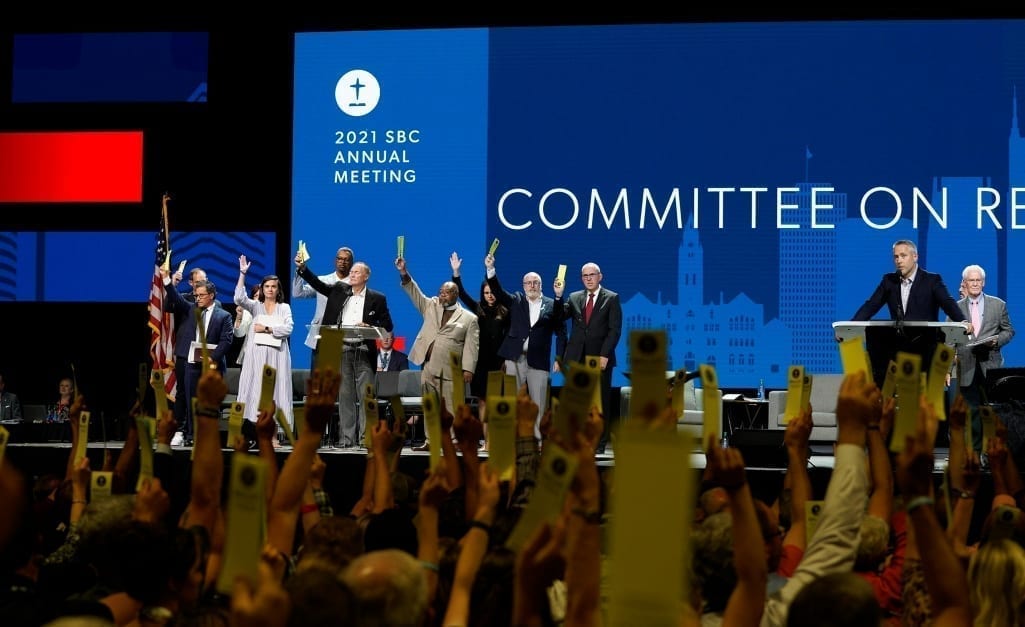The worship band starts up and you sing lyrics you’ve heard a hundred times before: “How deep the Father’s love for us, how vast beyond all measure, that he should give his only Son, To make a wretch his treasure.”
But the words catch in your throat.
You don’t feel like a treasure. In fact, you haven’t felt God’s love at all lately.
Is God’s love equal?
You would never say God doesn’t love you, but you’re not sure he loves you as much as someone like Charles Spurgeon, William Carey, or even the people up front leading the music. They’ve served God in obvious ways, so God is probably more accepting of them, right?
Maybe you’re tempted to believe there are two levels of God’s love. First, the love that exists between Father, Son and Spirit. This love is eternal and perfect, the fullness of what our earthly love points to. This is the deluxe package of God’s love. Second is God’s love for us. You know, the basic package.
We feel like there’s a difference between God’s love for his Son and his adopted children like some wrongly believe that parents have a greater love for their biological children than their adopted ones. But Jesus speaks a better word to us.
God doesn’t just love you as much as any other brother or sister – he loves you as much as he loves his Son.
Jesus’ comforting Spirit
Jesus describes the Father’s love for Him – and for us – in John 14. Sensing the disciples’ uneasiness as He discusses His return to the Father, the Savior comforts his followers with a promise: “I will not leave you as orphans; I will come to you” (John 14:18).
How will Jesus come to them while He’s in heaven? Through His Spirit. The sending of the Spirit unites believers to Jesus. That Spirit signals to the disciples, and to us, that we’re not alone: “In that day you will know that I am in my Father, and you in me, and I in you” (John 14:20).
Jesus’ ascension and the giving of His Spirit are testimonies that God has not left us alone. Our triune God has broken into this sin-wrecked world in order to reclaim His people.
Jesus did not merely accomplish His earthly work and then tell the disciples, “Y’all stay strong. I’ll see you when you die or when I return.” The Father sent the Spirit to unite us to Jesus, to conform us to the image of Jesus, and to hold us firmly to the hope that is in Jesus.
If you possess the Spirit of Jesus, then you possess the unadulterated, unfiltered love of God.
Holy and blameless
God does not begrudgingly forgive you. He won’t stand with arms crossed at the gates of the new heavens and new earth with a frown as you sulk by. Those three words – “you in me” – are a glorious promise that what is true of Jesus is true of us. Our sin has been taken away and when God looks at you, He sees Jesus, who is “holy and blameless” (Ephesians 1:4).
At the beginning of John 14, Jesus assures His followers:
“Let not your hearts be troubled. Believe in God; believe also in me. In my Father’s house are many rooms. If it were not so, would I have told you that I go to prepare a place for you? And if I go to prepare a place for you, I will come again and will take you to myself, that where I am you may be also” (John 14:1-3).
Did you catch that? The disciples are anxious about Jesus’ departure and fear what’s next. He comforts them by assuring them they will dwell in the Father’s house. Not in some rickety shack out back; no cupboard beneath the staircase. We are promised a room of our own in our Father’s house with our brother Jesus.
Sons and daughters
When we come before the Father, we do not come as mere servants of His Son; we come as sons and daughters ourselves, not because we are by nature sons and daughters, but because we have been wrapped in Jesus’ sonship.
“But when the fullness of time had come, God sent forth his Son, born of woman, born under the law, to redeem those who were under the law, so that we might receive adoption as sons. And because you are sons, God has sent the Spirit of his Son into our hearts, crying, “Abba! Father!” So you are no longer a slave, but a son, and if a son, then an heir through God” (Galatians 4:4-7).
What does this mean for our fellowship with God? It means you don’t get the scraps of God’s love. You get the prime cut. When you’re brought into union with Jesus, you are united in love with the eternal fellowship of Father, Son and Spirit.
Sure, we’re still sinful people, and there will be a day when we experience that fellowship to a greater degree. But you can rest today in the promise that you share in this triune fellowship.
This is why Christians are called to live a life of holiness. Those who have tasted from the pure waters of triune fellowship are foolish to return to the stale, festering waters of sinful desires.
“You shall be holy, for I am holy,” is not a burden to shoulder, but a result that flows from being caught up in the divine love of Father, Son and Spirit. But we’re prone to forget the beauty of heavenly love, choosing instead to chase pale imitations of it through relationships, possessions and experiences that only bring disappointment and despair.
Remind yourself of God’s love
If you long for God’s love, remind yourself:
– Christ himself mediates every prayer you utter (Romans 8:34).
– God is not an absentee Father; He has made himself known through His Word.
– Your church is a proclamation of God’s love represented as a family comprised of brothers and sisters from every nation, tongue and tribe, all equipped with spiritual gifts.
– God demonstrates his faithfulness through every sunset, sunrise and rainbow. It is the daily soundtrack that God “called you out of darkness into his marvelous light” (1 Peter 2:9).
If Satan throws the fiery darts of shame and guilt at you, don’t despair. There’s an empty tomb that speaks a better word than your guilt. It speaks of redemption and grace. It speaks of forgiveness. It speaks of love.
As Psalm 136:26 says, “Give thanks to the God of heaven, for his steadfast love endures forever.”
(EDITOR’S NOTE – Cody Cunningham is one of the pastors of Immanuel Community Church in New Orleans, La. He is also a staff member at Reaching and Teaching International Ministries, an organization that provides theological education for pastors overseas. You can read other writings at codycunningham.com. Originally published at gcdiscipleship.com. Used by permission.)


